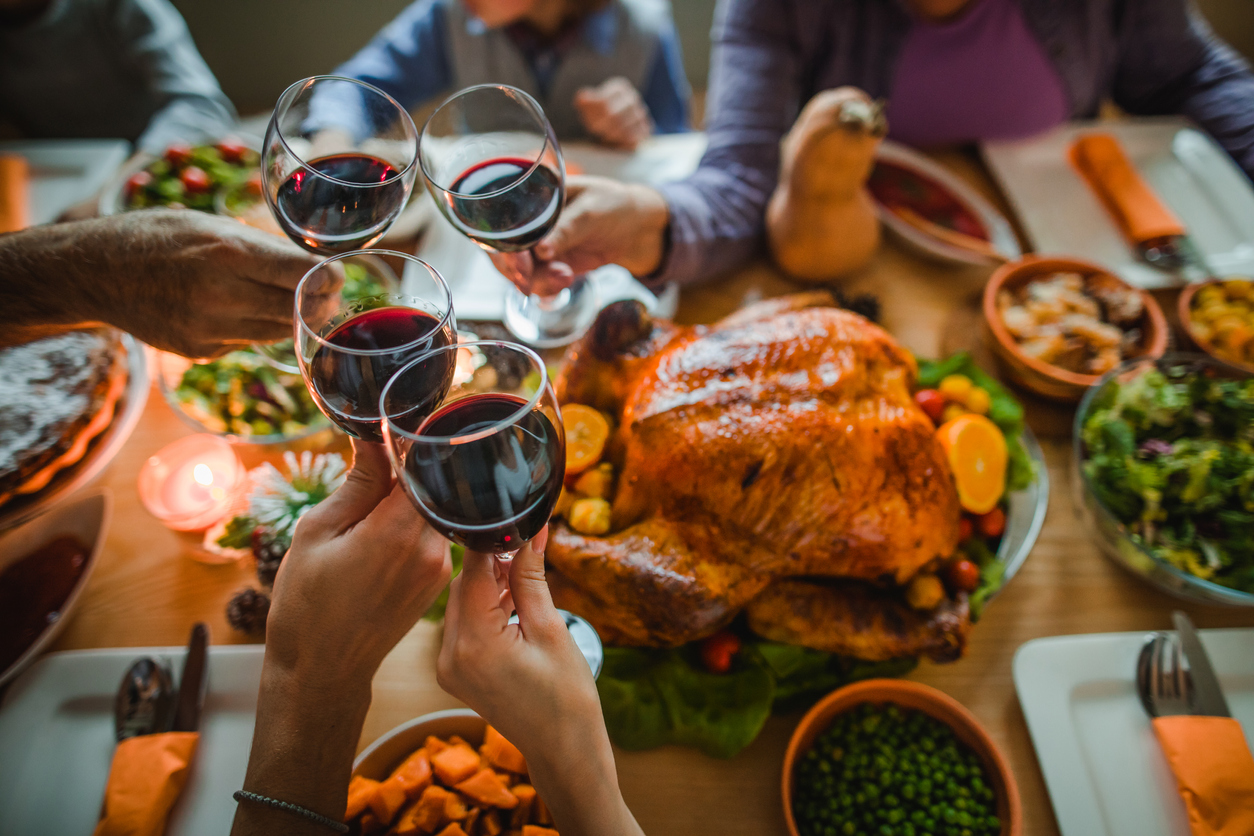The holiday season is upon us! In case you haven’t booked your travel plans yet for Thanksgiving or noticed all the Christmas decorations in stores (even before Halloween this year!), let us remind you that we’re only a couple weeks away from all the holiday treats, family dinners, and company cocktail parties.
To many people, food at the holidays promotes joy and enthusiasm. But when you have food restrictions, eating around the holidays can cause anxiety instead of excitement.
A 2019 study conducted by the University of Chicago found that approximately 11% of US adults have food allergies. For these people, encountering a certain food can trigger an immune response that can range from mild to life-threatening.
An even bigger portion of people experience food intolerances. For them, exposure to a problematic food may not be immediately life-threatening, but can cause unpleasant symptoms such as inflammation, digestive upsets, skin flare-ups, or damage to existing health conditions.
Plus, many people choose to avoid certain foods for a variety of additional reasons – health and otherwise.
Therefore for a large group of people, eating around the holidays can be a stressful event. Dr. Tania Elliott, a SteadyMD primary care doctor who is board certified as an Allergist / Immunologist, shares her thoughts around how to navigate holiday eating when you live with food allergies.
Holidays can be tricky for people with food allergies or intolerances because of:
Temptations.
At holiday events, you are often not in charge of the food, either because you are eating out or at someone else’s home. Passed hors d’oeuvres can be tempting, especially when you’re in the midst of conversation or distracted.
Recommendation: Eat a meal before heading out to a holiday cocktail party, so that you will be less tempted to eat unfamiliar foods.
Mystery Ingredients.
At holiday gatherings, you may be offered foods you aren’t accustomed to eating. Holiday traditions often coincide with special family recipes, which can be tasty but can also contain hidden food allergens.
Recommendation: Steer clear of foods unless you are certain of all the ingredients. You can also offer to bring a dish of your own, one that you know for certain won’t contain any allergens.
Cross Contamination.
Most restaurants are pretty good about avoiding cross contamination. They often have procedures in place for separating cooking utensils, as well as counter and cooking space to accommodate for allergy-related orders. However, someone cooking at home may not even consider cross-contamination when they re-use a cutting board. Condiments, shared side dishes, and utensils can also be breeding grounds for allergens. Even though your food may be allergen-free, many holiday meals are “family style” and carry an added risk of allergen exposure.
Recommendation: If someone offers to cook an allergen-free dish for you, ask that your food be cooked on a separate day to avoid the chances of cross contamination. Also, where you can, institute a no-double-dipping policy and avoid sharing utensils.
Social Pressure.
Sometimes people don’t understand the severity of food allergies or intolerances, although society is becoming more and more informed. If someone pressures you or teases you about your food choices, so what? What’s most important is your quality of health so that you can actually enjoy spending holiday time with loved ones.
Recommendation: Explain the context around why it’s important for you to be careful about what you eat. Make sure your host and guests are aware of your food allergen(s). Another workaround is to volunteer to host the holiday party yourself. That way, you make a friendly gesture while also getting the peace of mind of knowing exactly which ingredients go into the meals you serve.
Fear.
Maybe the fear around experiencing an allergic reaction – even if you’re taking all the necessary precautions – is omnipresent in your mind during the holidays.
Recommendation: Always carry your epipen with you. It will help you have peace of mind and better enjoy the holiday season.
Do you have other tips for navigating the holidays when you have food restrictions? If so, share them with us Instagram or Facebook.
If you’re struggling to navigate food restrictions on your own, the best step to take is to seek the guidance of a qualified professional. A SteadyMD doctor can take the time to answer your questions and provide direction, based on a foundation of medical experience and professionalism.
At SteadyMD, you’re matched with a doctor who is aligned with your medical needs, lifestyle preferences, and health priorities, not just a physician who happens to be local to your area. To see which of our doctors would be your ideal partner in health, take our matching quiz. And to find out more about what we offer, visit steadymd.com.
